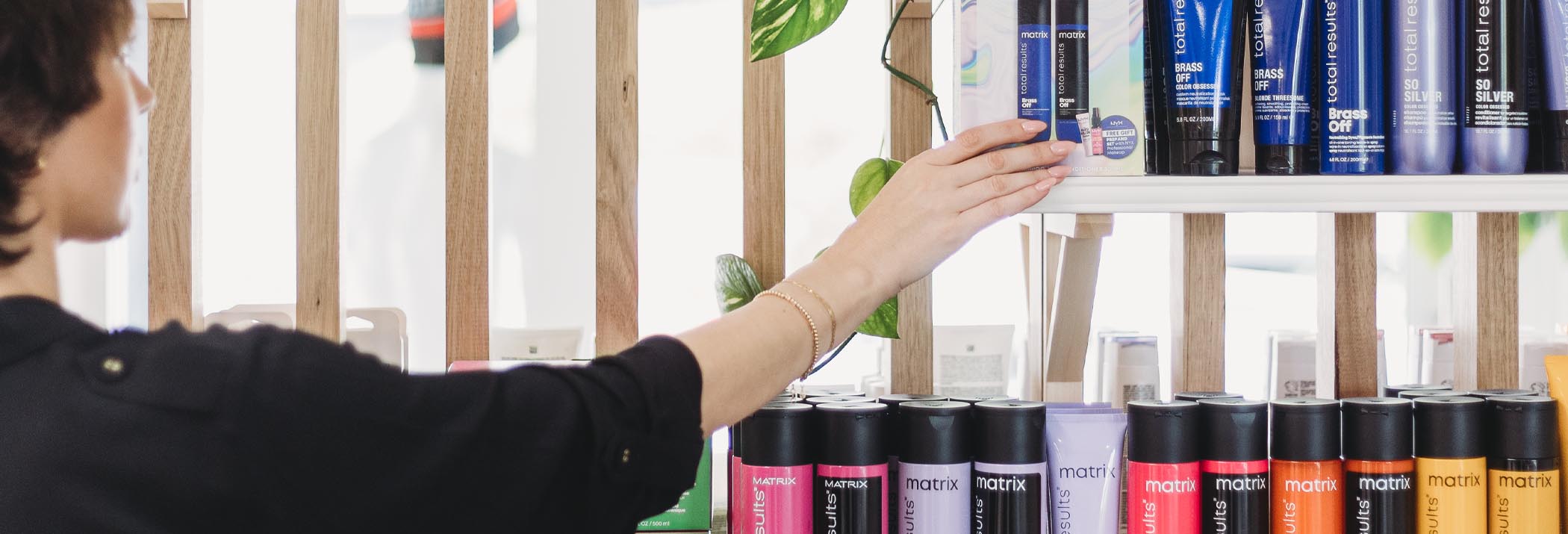
Hair has always held immense significance in defining our individuality and self-expression. Whether we opt for a daring, voluminous mane or a sleek and refined style, our hair plays a pivotal role in shaping our overall appearance. However, for many people, the issue of thinning hair can be a source of worry, impacting their self-confidence and well-being.
Thinning hair can stem from various factors, including genetics, hormonal fluctuations such as pregnancy, postpartum, menopause or nutritional deficiencies such as Iron or Iodine or weight loss journeys or thyroid dysfunction, and medical conditions. Thankfully, the hair and wellness industries have made remarkable advancements, offering innovative solutions to combat this common problem. Ranging from nutritional support, shampoo's, scalp serums and more.

CAUSES OF THINNING HAIR
Before delving into the realm of thinning hair, it's crucial to understand the common causes behind hair thinning. By familiarizing ourselves with these factors, we can better comprehend the underlying issues and address them appropriately. Here are some key contributors to thinning hair:
Genetic Predisposition:
Genetics play a substantial role in determining whether one is prone to experiencing thinning hair. If your parents or close family members have a history of hair loss, it increases the likelihood of encountering this issue. Although we cannot alter our genetic makeup, being aware of our family's hair history allows us to take proactive measures to prevent or manage thinning hair effectively.

Hormonal Imbalances:
Hormonal changes can disrupt the natural hair growth cycle and contribute to hair thinning. Conditions such as polycystic ovary syndrome (PCOS), thyroid disorders, and menopause can lead to hormonal imbalances that affect the health of our hair. Consulting with healthcare professionals can help identify and address any hormonal issues that may be contributing to hair thinning.

Stress:
Both physical and emotional stress can take a toll on our overall well-being, including the health of our hair. High levels of stress can result in increased hair shedding and thinning. Incorporating stress management techniques into our daily routines, such as exercise, meditation, and relaxation exercises, can help minimize its impact on our hair.

Medications:
Certain medications, including those used in chemotherapy, blood thinners, and antidepressants, can have side effects that include hair loss or thinning. If you are experiencing thinning hair as a result of medication, it is essential to consult with your healthcare provider to explore alternative options or discuss potential solutions. In the salon, we have been seeing a lot of women experiencing hair loss due to weight loss programs they are on.

Poor Nutrition:
A balanced diet rich in essential nutrients is crucial for maintaining healthy hair. Nutritional deficiencies, particularly in iron, zinc, biotin, and vitamin D, can contribute to hair thinning. To ensure our hair follicles receive the necessary building blocks for healthy growth, it is vital to incorporate a variety of fruits, vegetables, lean proteins, and whole grains into our meals.

Lack of Proper Hair Care:
Improper hair care practices can gradually damage our hair, leading to thinning strands. Over-brushing, harsh chemical usage, frequent heat styling, lack of treatments or heat protectants and tightly pulled hairstyles can weaken the hair and cause breakage. Opting for gentle hair care routines, using heat protectants, and avoiding hairstyles that excessively strain the hair follicles can promote healthier, thicker hair.

Excessive Heat or Chemical Treatments:
Repetitive use of heat styling tools, such as straighteners and curling irons, and chemical treatments like relaxers and perms can cause hair damage and thinning. It is advisable to limit the usage of these treatments and ensure the application of heat protectants and gentle, nourishing products to minimize potential damage.





